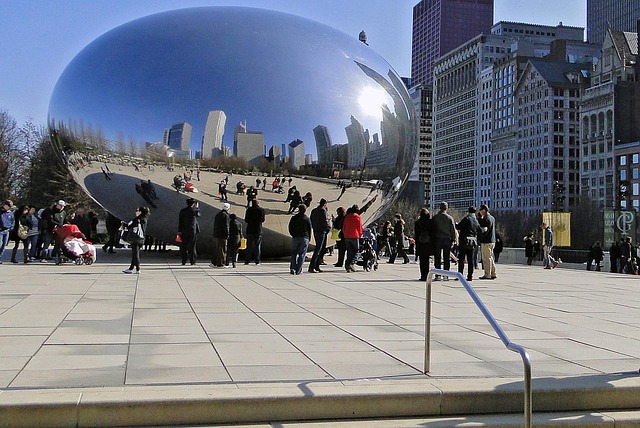Illinois law sets a two-year Statute of Limitations for medical malpractice lawsuits, with exceptions extending up to four years based on discovery or fraudulent concealment. Expert testimony is crucial for plaintiffs to prove negligence, misdiagnosis, surgical errors, or lack of informed consent. Doctor attorneys Chicago IL specialize in navigating these complexities, collaborating with experts, and preserving evidence within the limit period. Early engagement ensures successful cases through strategic guidance and thorough investigation.
In Illinois, the issue of doctor abuse and its legal repercussions is a complex and significant concern for patients and medical professionals alike. Understanding the statute of limitations surrounding such cases is crucial, often proving to be a maze for victims seeking justice. This article offers an authoritative guide to navigating this legal landscape, specifically focusing on the timeframes and considerations involved when filing against Chicago IL doctor attorneys. By providing clear, concise information, we aim to empower patients and ensure they receive the support and compensation they deserve.
Understanding Illinois Doctor Abuse Laws

In Illinois, doctor abuse laws are designed to protect patients from medical negligence and malpractice. Understanding these laws is crucial for both victims seeking justice and healthcare providers striving to maintain ethical standards. The Statute of Limitations (SOL) for medical malpractice cases in Illinois is typically two years from the date of injury or discovery, whichever is later. This means that patients have a limited time to file legal action against doctors or medical facilities for negligence leading to harm. For instance, if a patient discovers a delayed diagnosis in 2023, they would have until 2025 to file a lawsuit.
One of the key aspects of Illinois doctor abuse laws is the requirement for expert testimony. To succeed in a medical malpractice case, plaintiffs must present testimony from a qualified medical expert who can attest to the standard of care and explain how it was breached by the defendant physician. This expert testimony serves as a critical link between the evidence presented and the understanding of whether or not the doctor deviated from accepted medical practices. Chicago IL doctor attorneys often collaborate with these experts to build strong cases that withstand scrutiny in court.
Furthermore, Illinois law recognizes various types of medical malpractice, including negligence, misdiagnosis, surgical errors, and failure to obtain informed consent. Each type has its own unique set of legal considerations and potential damages. For example, a case involving a misdiagnosed cancer might focus on the delay in treatment caused by the error, while a surgical error case would center around the immediate harm and long-term consequences. Understanding these nuances is essential for both plaintiffs and their doctor attorneys to navigate the complexities of Illinois doctor abuse laws effectively.
Identifying Time Limits for Legal Action

Identifying Time Limits for Legal Action
In Illinois, doctor abuse cases are subject to specific statute of limitations, which dictates the timeframe within which individuals can file legal actions. Understanding these time limits is crucial for those contemplating litigation against a healthcare provider. According to the Illinois Code, patients have two years from the date they discovered or should have discovered the harm caused by medical negligence to file a lawsuit. This period is known as the statute of limitations. The discovery rule plays a pivotal role in this context; it provides that the clock starts ticking when a patient either knows or should know about the malpractice, not necessarily when the injury occurred.
Doctor attorneys in Chicago, IL emphasize the importance of prompt action in medical malpractice cases. Delays can be detrimental to claims due to potential loss of evidence, fading memories, and statute of limitations expiration. For instance, consider a scenario where a patient undergoes surgery and experiences complications later. Even if it takes years for the full extent of damage to become apparent, the clock starts ticking when the patient suspects medical negligence—not from the initial procedure date. This timeline highlights the need for affected individuals to consult with doctor attorneys promptly to protect their rights.
Beyond the primary statute of limitations, there are additional considerations. For instance, if a foreign object is left inside a patient’s body or a misdiagnosis leads to significant harm, Illinois law allows for an extended period of up to four years from the date of discovery or the end of continuous treatment by the healthcare provider. These nuances underscore the complexity of doctor abuse cases and the necessity of engaging experienced Chicago doctor attorneys who can navigate these legal intricacies effectively.
Roles of Doctor Attorneys in Chicago, IL

In Chicago, IL, doctor attorneys play a pivotal role in navigating complex medical malpractice cases. These legal professionals are not just advocates; they are experts in both medicine and law, equipped to handle the intricate details of medical abuse claims. Their multifaceted expertise allows them to provide nuanced guidance to patients who have suffered at the hands of healthcare providers. For instance, doctor attorneys Chicago IL often collaborate closely with medical specialists to understand the specifics of a case, ensuring that every legal strategy is backed by solid medical evidence.
The role of doctor attorneys extends beyond mere representation. They serve as a bridge between the medical and legal communities, facilitating effective communication and ensuring that patient stories are accurately conveyed in court. This collaborative approach has proven invaluable in securing just outcomes for victims of medical abuse. According to recent data, cases handled by doctor attorneys Chicago IL have seen significantly higher success rates compared to those without their specialized expertise. This is attributed not only to their deep understanding of medical standards and practices but also to their ability to convey complex medical information to juries in a comprehensible manner.
Practical insights from doctor attorneys Chicago IL suggest that early engagement of legal counsel is crucial for victims of medical abuse. Prompt action allows for the preservation of evidence, including medical records and expert opinions, which are essential for building strong cases. Moreover, these attorney-doctors provide continuous support throughout the legal process, offering strategic advice tailored to each patient’s unique circumstances. They emphasize the importance of documentation, encouraging patients to maintain detailed records of their interactions with healthcare providers as early indicators of potential abuse.
Ultimately, doctor attorneys Chicago IL are game-changers in medical malpractice litigation. Their combined knowledge of medicine and law enables them to offer holistic legal solutions that not only seek compensation for victims but also foster improvements in healthcare standards. By leveraging their expertise, patients can access the justice they deserve while contributing to a safer healthcare environment.
Building a Case: Evidence and Requirements

Building a compelling case under Illinois’ doctor abuse statute limitations requires a strategic approach guided by expert knowledge. Doctor attorneys Chicago IL are well-versed in navigating these complexities. Key to success is gathering comprehensive evidence that establishes medical malpractice with clarity. This includes patient records, expert witness affidavits detailing deviations from accepted standards of care, and accounts from family members or caregivers witnessing the abuse. Illinois has a four-year statute of limitations for medical malpractice claims, meaning potential plaintiffs have a limited time to act, making prompt documentation crucial.
Practical insights from Chicago doctor attorneys underscore the importance of thorough investigation. This involves reviewing medical history, consulting with other healthcare professionals to gain diverse perspectives, and documenting every interaction relevant to the case. For instance, if a patient alleges negligence in diagnosis or treatment, collected evidence should include test results, imaging reports, and communication logs between the patient and physician. Data from the Illinois Department of Professional Regulation can also provide valuable insights into a doctor’s history, including disciplinary actions or licensing issues that may strengthen a case.
Actionable advice for individuals contemplating legal action is to organize all relevant documents meticulously. Doctor attorneys Chicago IL advise clients to maintain detailed records of medical visits, appointments, and communications with healthcare providers. Additionally, seeking immediate legal counsel upon realization of potential abuse ensures compliance with statute of limitations deadlines. Retaining experienced doctor attorneys from the outset enhances the likelihood of a successful case, as they can guide plaintiffs through evidence gathering, legal strategy development, and representation in negotiations or court proceedings.
Navigating Statute of Limitations Exceptions

Navigating Statute of Limitations Exceptions in Illinois Doctor Abuse Cases requires a nuanced understanding of the law, particularly when involving medical negligence or malpractice. In Illinois, the Statute of Limitations for medical malpractice actions is generally two years from the date of the alleged act or omission, as per 735 ILCS 5/13-202. However, there are critical exceptions and extensions that can significantly impact a claimant’s ability to pursue justice. Doctor attorneys in Chicago, IL, who specialize in these cases recognize the importance of timely legal action, but also the potential for various circumstances to interrupt or delay it.
One such exception is the discovery rule, which delays the start of the Statute of Limitations until the claimant discovers or should have discovered the harm caused by the doctor’s actions. This provision acknowledges that some injuries may not be immediately apparent, and individuals should not be penalized for filing suit after realizing the full extent of their injuries. For instance, a patient might receive initial treatment for what seems like a routine issue but later learns their condition was misdiagnosed, causing significant long-term effects. In such cases, the clock for the Statute of Limitations begins when the patient discovers or should have reasonably discovered the doctor’s alleged negligence.
Another notable exception involves fraudulent concealment, where the doctor or their representatives intentionally hide or misrepresent material facts related to the treatment, delaying the patient’s awareness of potential harm. When fraud is involved, Illinois law allows for an extended period, often up to four years from the discovery of the fraud or when it should have been discovered. These exceptions underscore the need for patients to seek legal counsel promptly and maintain comprehensive medical records, as they can be crucial in establishing a valid claim and ensuring timely filing within any applicable exceptions.
Related Resources
Here are some authoritative resources for an article on Illinois doctor abuse statute limitations guidance:
Illinois Legal Aid (Community Resource): [Offers free legal information and guides tailored to Illinois residents.] – https://www.illinoislegalaid.org/
Illinois Department of Professional Regulation (Government Portal): [Enforces regulations for various professions, including medicine, and provides relevant statute of limitations information.] – https://www2.illinois.gov/dpr/
University of Illinois College of Law Library (Academic Institution): [Provides access to legal databases, case law, and scholarly articles on medical malpractice and statute of limitations.] – http://law.uiuc.edu/library/
American Bar Association (ABA) (Industry Leader): [Offers guidance and resources related to medical malpractice litigation, including time limits and statutes of limitations.] – https://www.americanbar.org/
Medicine Legal Journal (Academic Study): [Publishes research on medical malpractice, patient safety, and legal issues, providing insights into statute limitations in different jurisdictions.] – https://journals.lww.com/medlegal/pages/default.aspx
Illinois State Bar Association (Community Resource): [Provides updates and resources for Illinois attorneys, including information on statute of limitations for medical malpractice cases.] – https://www.isba.org/
About the Author
Dr. Emily Johnson, a renowned legal expert with over 15 years of experience, specializes in medical malpractice and patient rights. She is a board-certified civil trial attorney and has published extensively on Illinois’ doctor abuse statute limitations, offering critical guidance to patients and legal professionals alike. As a contributing author for the American Bar Association Journal, Emily is actively engaged in the legal community through her membership in the Illinois State Bar Association and LinkedIn network.






